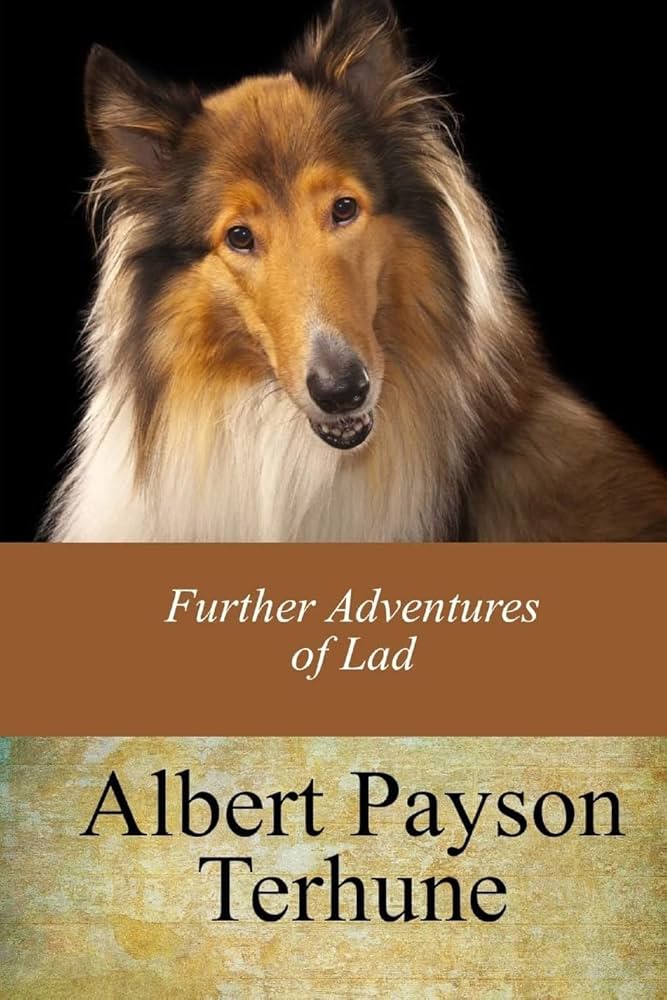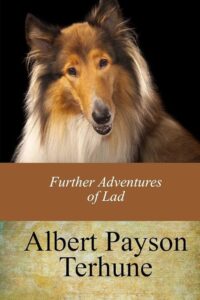Chapter IX: Old Dog; New Tricks
byChapter IX: Old Dog; New Tricks opens with a challenge to a familiar saying—one that suggests age and learning are at odds. Lad, a dignified collie well past the height of his youth, quietly disproves that notion through his actions rather than any display of force or novelty. At twelve, his muzzle is silvered and his steps are slower, but his mind remains sharp. One afternoon, he surprises his family by trotting home with a lace parasol clutched delicately in his jaws. He found it abandoned, yet untouched, treating it not as a toy but as something needing safe return. The parasol is not his, nor his mistress’s, yet it is clear he understands the difference between what belongs and what is merely lost. That thoughtful act earns him not only praise, but renewed admiration from his people, who now look at him with fresh wonder.
Encouraged by their delight, Lad develops a new habit: seeking out treasures during his daily wanderings. One day, his instincts lead him to a picnic basket, loaded with food, clearly meant for someone’s enjoyment. He doesn’t disturb its contents or treat it as spoil, but instead brings it home, as if it too had been misplaced. His family, half-amused and half-awed, recognize the depth of Lad’s respect for boundaries. Unlike a dog acting on appetite, Lad shows judgment and restraint—qualities that elevate him beyond mere obedience. His gentle mouth and keen eye turn these items into offerings, not theft. These gifts are not about reward, but about service—Lad’s way of being useful, of keeping his purpose alive as age creeps closer.
But one day, the game changes. Deep in the woods, Lad finds something very different from baskets or umbrellas: a baby, swaddled and alone. The child’s scent is unfamiliar, but something in Lad tells him this is a life, not a thing—a small being in need of protection. With great care, he nudges and gently lifts the child, determined to bring it home as he had with the parasol. Unknown to him, the baby belongs to the Rennicks, a wealthy couple who have been frantic with worry since the child’s abduction. The scheme was orchestrated by Schwartz, a disgruntled former gardener, and his accomplice, who hoped to extort a ransom. In their cruel plan, they left the baby briefly while tending to a tire, never imagining that an old dog might unravel everything.
When the men realize the baby is missing, they double back in a panic, only to see Lad disappearing into the trees. They pursue, certain they can frighten or overpower him. But Lad is not an ordinary dog, and he is not afraid. Protecting the child, he turns with the force of a guardian unleashed. In the fight, he lashes out with precision, biting one man’s leg and causing the other to stumble. The assailants, bruised and startled, retreat hastily, abandoning their twisted plot in favor of escape. Lad stands his ground, his fur streaked with dirt and his limbs tired, but his determination unbroken.
By the time Lad reaches the gate of The Place, the baby cradled in a blanket against his chest, his family is in disbelief. They rush to meet him, expecting perhaps a new “found object,” but fall silent when they see the child’s face. The rescue is not just astonishing—it’s heroic. Gentle hands lift the baby as Lad slumps beside the porch, panting but proud. Soon, word spreads. Police arrive, followed by the Rennicks, their joy and gratitude beyond measure. The officers take the baby’s return as evidence enough to follow the trail back to the criminals. Yet all eyes return again and again to Lad, lying in the afternoon light, eyes half-closed, tail wagging faintly as if unsure what all the fuss is about.
The chapter closes not with applause, but with quiet affection. Lad doesn’t seek credit or understand awards. What he knows is that he did right—he served, he protected, and he adapted. His age didn’t slow his mind or dim his heart. Instead, it gave him the patience and perspective to see clearly, to act bravely, and to carry life, not just objects, back to safety. In doing so, Lad proves not just that old dogs can learn new tricks—but that the truest tricks are those born of instinct, love, and enduring purpose.


